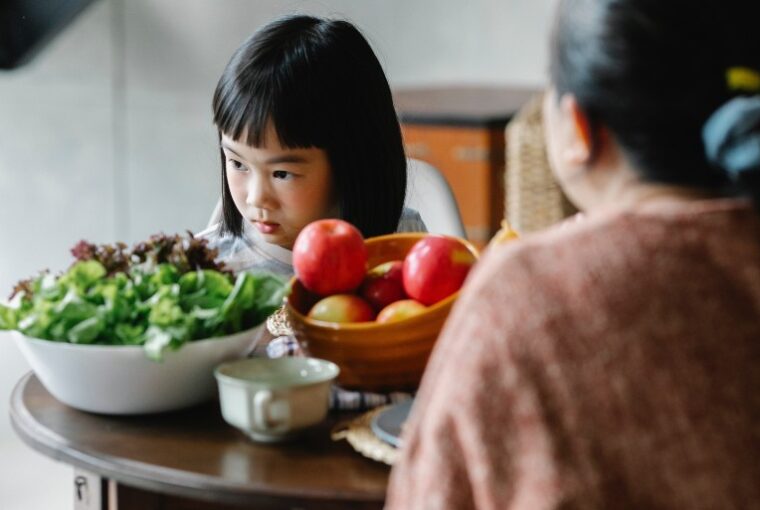I am a survivor of traditional tiger parenting methods.
What is tiger parenting?
It is a form of harsh and demanding authoritative parenting where the child is pushed to excel and shine at everything she or he does, particularly in academic results and in extracurricular activities. There is little time left for play – in fact, even play can become burdensome when pushed through with tiger parenting strategies.
For example, I enjoyed playing the piano but grew to dislike it when I was forced to take piano examinations. I had to learn musical theories and piano pieces that I did not care for just to pass musical grades. Something I wanted to do for fun became arduous because adults thought playing the piano for “fun” was a waste of time.

I have not touched the piano in front of people for a decade and more now. The memories of myself crying and kicking the piano, forcing myself to practice so that I can avoid being scolded, are still fresh in my mind. I can only play the piano in peace when I am alone, knowing that no one can hear me and cannot criticise my playing.
This, along with other quirks I have, is a leftover sign of tiger parenting.
Asian parents and tiger parenting
Asian parents, in general, are firm believers in the term “spare the rod and spoil the child”. Disciplining is king in the Asian household, with the same tiger parenting methods passed down through generations. Anything can be utilised as a discipline tool – rattan canes, newspapers, slippers, kneeling, shouting, demeaning words – to shape the Asian child to be a righteous and functional adult.

In modern society, many of these disciplining tools can be considered physically or emotionally abusive.
Is tiger parenting itself abusive?
This is not to say tiger parenting is abusive. Tiger parenting has its place and time to deal with children who want to test boundaries, slack off, and are disruptive. However, if it goes overboard, it can become cruel. Many people are not certain of the line between being firm and being unkind, and parents can sometimes cross that line unknowingly.
Some parents who utilise traditional tiger parenting methods truly mean well and believe their methods are correct. Others who have a harsher temperament take it too far.
I, and many others like me, have mixed feelings about our parents’ chosen parenting methods. As an adult, while we recognise that our parents did the best with what they knew, some scars are not so easily healed with just that understanding.
To make matters worse, tiger parenting is a tricky topic to bring up with many people. Some may accuse you of being ungrateful to your parents who brought you up, while others will say that you are doing well exactly because of those methods. Such dismissive, general conclusions are how intergenerational trauma is passed down in the guise of the greater good.

What Are the Positives and Negatives of Tiger Parenting?
There have been a number of claims that tiger mothers are at least partially responsible for higher success rates among Asians in particular because they hold their children to high standards, have great expectations toward them and place importance on hard work and education.
The tiger mother is a controversial term for a parent who holds their child to high standards in terms of academics and extracurricular activities. The parenting style is more demanding than that of other cultures and places a heavy emphasis on academic success.
Tiger parents may be seen using harsh criticism, physical punishment, or other negative behaviours as disciplinary measures against their children. Despite the term’s bad reputation, scientific evidence indicates that this particular parenting style has been positively associated with higher academic achievement in Asian children.
While tiger parents may raise successful children, this type of parenting has disadvantages too. Research suggests that children raised in this manner tend to have low self-esteem, psychological problems and less creativity. A lack of free time and the pressure to excel can also lead these children to develop behavioural issues such as disobedience, defiance and arguing with adults.
There are also concerns that tiger parenting may prevent children from developing their own interests or exploring different activities. This is because these parents only encourage extracurricular activities they believe will help the child in getting into a better school, such as playing an instrument or excelling at math.
What Are the Positives and Negatives of Tiger Parenting?
There have been a number of claims that tiger mothers are at least partially responsible for higher success rates among Asians in particular because they hold their children to high standards, have great expectations toward them and place importance on hard work and education.
The tiger mother is a controversial term for a parent who holds their child to high standards in terms of academics and extracurricular activities. The parenting style is more demanding than that of other cultures and places a heavy emphasis on academic success.
Tiger parents may be seen using harsh criticism, physical punishment, or other negative behaviours as disciplinary measures against their children. Despite the term’s bad reputation, scientific evidence indicates that this particular parenting style has been positively associated with higher academic achievement in Asian children.
While tiger parents may raise successful children, this type of parenting has disadvantages too. Research suggests that children raised in this manner tend to have low self-esteem, psychological problems and less creativity. A lack of free time and the pressure to excel can also lead these children to develop behavioural issues such as disobedience, defiance and arguing with adults.
There are also concerns that tiger parenting may prevent children from developing their own interests or exploring different activities. This is because these parents only encourage extracurricular activities they believe will help the child in getting into a better school, such as playing an instrument or excelling at math.
Is It Better For to Be a Tiger Kid or a Free-Range Kid?
Well, the correct answer may depend on whether you’re looking at typical children or gifted ones. In fact, some experts say that gifted children may not benefit from parental involvement because they’re so self-motivated and creative.
However, for the typical kid, there are certain benefits of tiger parenting, as long as it doesn’t lead to stress or burnout. Parents who are involved in their child’s education tend to have children who are more self-confident and motivated.
That said, if parent involvement turns into excessive pressure from parents or teachers, then it can lead to negative effects. Research shows that several hours of daily homework along with parental pressure can cause anxiety and depression in students – not exactly what anyone wants.
Father or Mother, Who is The Harshest Tiger?
While the mothers generally take on the more day-to-day responsibilities of parenting, it is often the fathers’ desire to achieve the success that drives parents to adopt tiger parenting in the first place.
What does this mean for tiger dads? As with all parents, tiger dads want their children to succeed and be happy. But they also want their children to reflect well on them, that is, to make them feel important and successful by extension. A child’s failure could mean that they have failed their father as well. And these are not abstract concepts for a tiger dad but rather very real fears that must be dealt with on a daily basis.
While both mothers and fathers use harsh methods in tiger parenting, they may do so in different ways. For example, many tiger moms will use guilt to motivate their children. They will remind their children of the sacrifices they have made for them.
However, tiger dads tend not to use these kinds of tactics as often because they are uncomfortable with emotional confrontation. Instead, they utilize fear and threats to their children as motivating factors.
Are You a Victim of Tiger Parents?
First of all, if you grew up as a child of tiger parents, please know this – you are not alone. Not all children of tiger parents grow up to be happy and rich doctors, lawyers, or accountants. Some of us grow up to be disappointed with our parents and their extensive expectations, and that is okay.
Not every kid can get straight As, have a great extracurricular track record, and be popular in school with teachers and students. I have certainly never been great at any of that and have been punished multiple times as a result.
Do not let your inability to reach your parents’ expectations make you feel like you are a failure, because you are not. Success comes in many ways. Even geniuses in school burn out as adults ill-equipped to deal with the real world.
How to Heal From Tiger Parenting
The Internet is a great way to find the support and help you need, whether for you to find people who understand you (YouTube, Instagram, Reddit), or to find free therapy sessions to help you navigate your complex feelings about your childhood.
Additionally, books like Adult Children of Emotionally Immature Parents: How to Heal from Distant, Rejecting, or Self-Involved Parents by clinical psychologist Lindsay C. Gibson can also help you understand and unpack your childhood thought processes. They will help you see your parents as just normal flawed people, instead of authority figures you still struggle to please.
Whether you are still a child, or your childhood is behind you, it is never too late to start healing yourself from any hurt you may have gotten then. This does not mean that you do not love your parents. Acknowledge that they are humans who did their best, but have also made some mistakes. You are not wrong for calling that out and wanting to heal from the scars of those mistakes.
Final Remarks
Tiger parenting is overly strict, forceful, and suffocating for children. There is nothing wrong with setting high standards and having a vision for your child’s future. But parents should not force their children to live up to those standards or pass down their own dreams. They need to be the parent, not their child’s coach.
What’s more, they shouldn’t act so erratically that they endanger their relationships with their children. At the end of the day, parents want what’s best for their kids, and that should include giving them the freedom to make their own choices as well.








